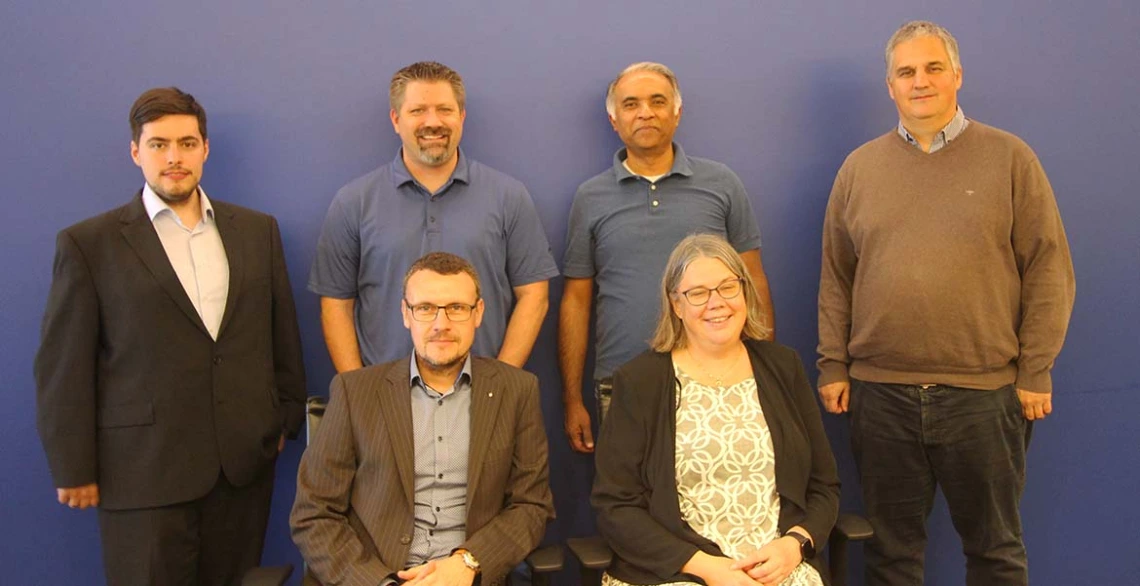ECE Professor Hosts NATO Research Group
The UA is helping push the capabilities of computational imaging and compressive sensing technologies.

Back row: Juergen Limbach, Todd Du Bosq, Abhijit Mahalanobis, Martin Laurenzis. Front row: Christian Eislee, Judith Dijk.
Global experts gathered at the University of Arizona in November 2022 to explore new technologies for defense. The research task group, or RTG, for NATO’s Science and Technology Organization was hosted by Abhijit Mahalanobis, who is a member of the group and associate professor of electrical and computer engineering.
The RTG is investigating the potential military use of computational imaging and compressive sensing for electro-optical and infrared systems. These image formation techniques have the potential to dramatically reduce system cost while allowing operators to gather more information at greater ranges and to react to threats more quickly, said panel chair Todd DuBosq, chief scientist for the Modeling and Simulation Division, U. S. Army DEVCOM C5ISR Center.
Over the three-year span of the RTG, DuBosq plans to conduct a field trial to assess the true performance of the techniques. In the meantime, the group is gathering the latest information from government, industry and academia, with universities pushing the technology’s capabilities, he said.
“The University of Arizona has some of the leading experts in this field,” he said.
DuBosq was pleased to tour the UA’s facilities and meet professors and graduate students in electrical and computer engineering and optical sciences.
“The time here has opened our eyes to a lot of new technologies,” he said, adding: “As a scientist working in a federal government lab, the pipeline of bright students working on cutting-edge research is encouraging.”

